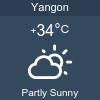
Yangon
Yangon's Heritage Buildings
- Details
- Hits: 7182

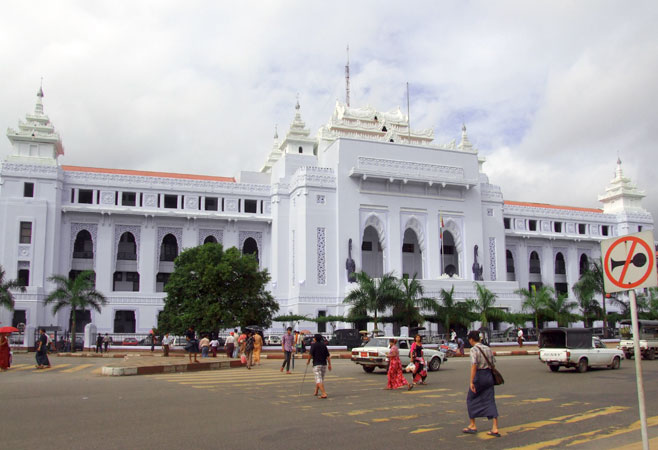 Yangon's Heritage Buildings
Yangon's Heritage Buildings
Yangon's cityscape is utterly unique. Much of its colonial-era architecture remains standing and the city boasts one of Asia's most impressive collections of late nineteenth-century and early-twentieth-century buildings, both religious and secular.
To walk along the streets of downtown Yangon is - architecturally, at least - to step back in time. The physical setting of Yangon first took shape in a sketch drawn by a British superintendent surgeon called Dr. William Montgomerie over 150 years ago. Exploiting the advantageous riverside location, Montgomerie plotted a neat grid of streets leading off a wide Strand along the river. The streets angles to channel the river breeze and were kept narrow enough to provide shade from the glaring tropical sun throughout the day. Lieutenant Alexander Fraser of the Bengal Engineers later expanded this chessboard pattern into the template of the city you see today. Though the British exercised an effective carte blanche in their city planning obliterating the existing wooden structures and brick tenements, they mapped the city around religious sites such as the Sule Pagoda, which is located almost in the centre of the downtown grid. The northern part of the city, around the Shwedagon Pagoda, was used by the British as a military cantonment and this division is still apparent, the dense, geometrically precise layout of downtown is a dramatic contrast to the winding lanes, roundabouts, and lakes that earned Yangon the moniker "the Garden City".
Downtown Yangon (ရန်ကုန်မြို့လယ်) is known for the highest number of colonial period buildings in Southeast Asia. The former High Court. the former Inland Water Transport building. the former Secretariat buildings and the Strand Hotel are excellent examples of the Yangon's past. Century-old buildings with magnificent architecture are main tourist attraction in downtown Yangon.
1. Yangon City Hall
- Address: Mahabandoola Road, northeast corner of Sule Pagoda Road
- For hours, maps, entrance fees, and 360° virtual tour, read more..

2. Custom House
- Address: 132 Strand Road,
- For hours, maps, entrance fees, and 360° virtual tour, read more...
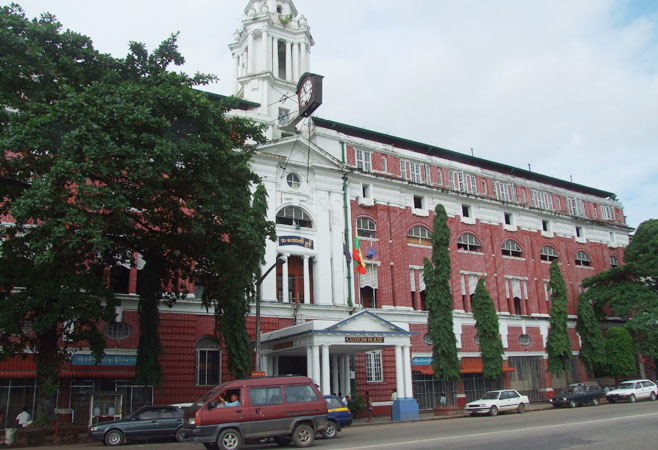
3. High Court Building
89-123 Pansodan Street, additional entrance on Mahabandoola Garden Street

4. Inland Water Transport Building
No.50, Pansodan Street, Kyauktada Township, Yangon, Myanmar
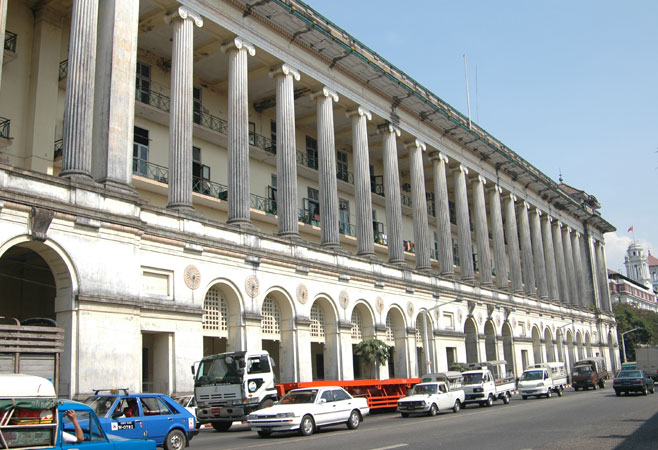
5. Strand Hotel
92 Strand Road
- For hours, maps, and entrance fees, read more.
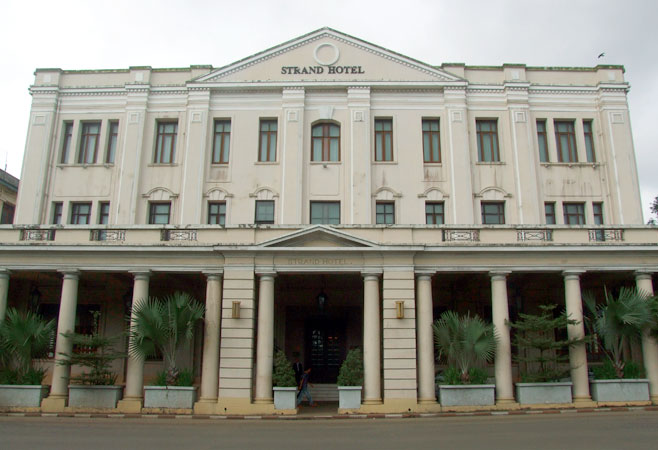
6. Myanmar Port Authority Building
Strand Road, east corner of Pansodan Street
- For hours, maps, and entrance fees, read more...
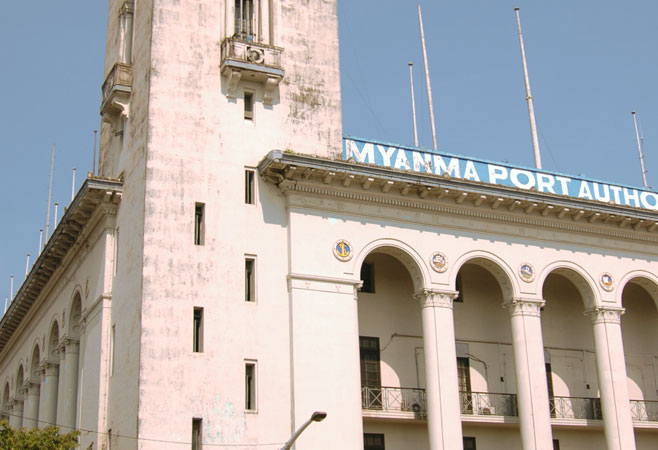
7. Secretariat Buildings or Ministers' Building
300 Theinbyu Road, Between Anawrahta Road and Mahabandoola Road
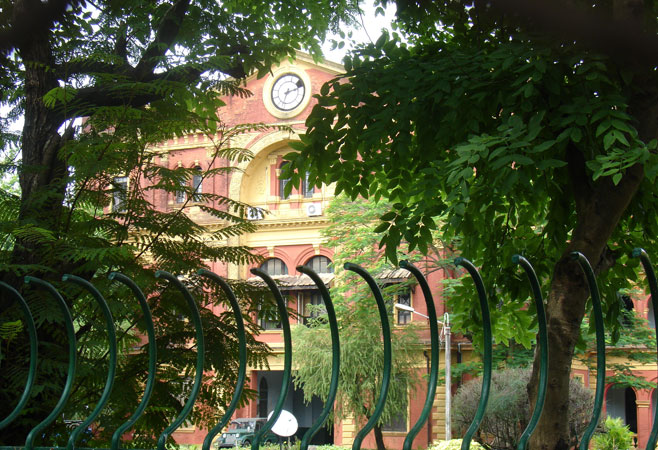
8. The former office of the Immigration and Manpower Department
next to yangon city hall
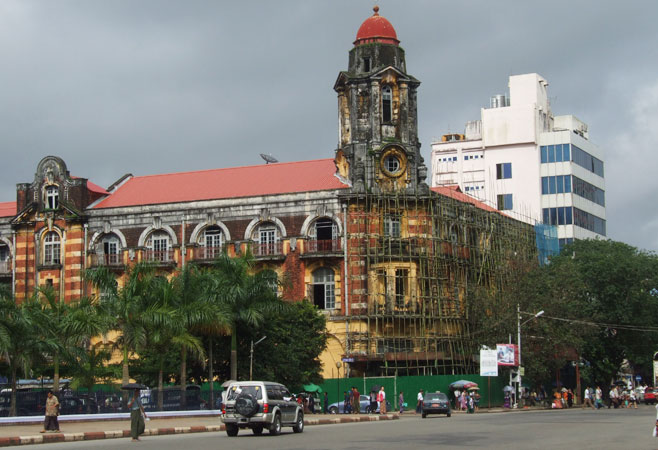
9. Myanmar Railways Headquarters
Northwest corner of Sule Pagoda Road and Bogyoke Aung San Road
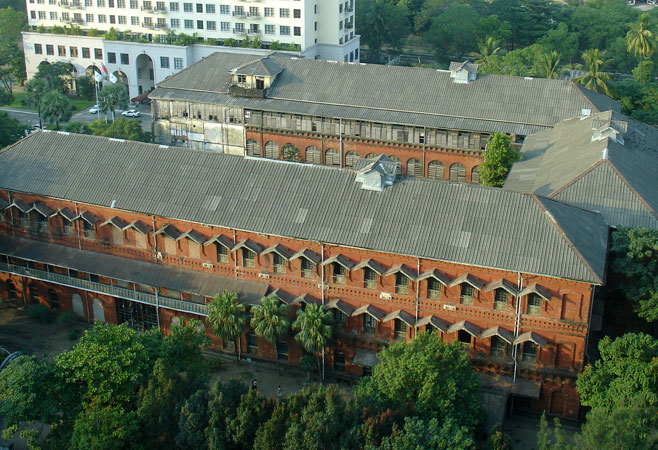
10. The Tejoomal building
138-140 Pansodan Street, corner of Mahabandoola Road
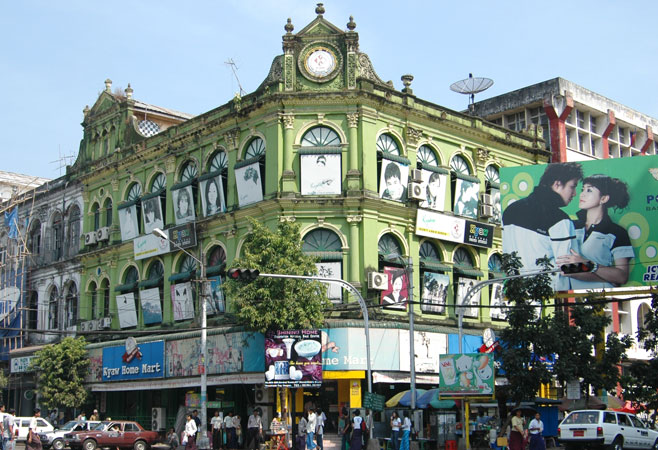
11. Rander House
Southwest side of Pansodan Street, corner of Merchant Road
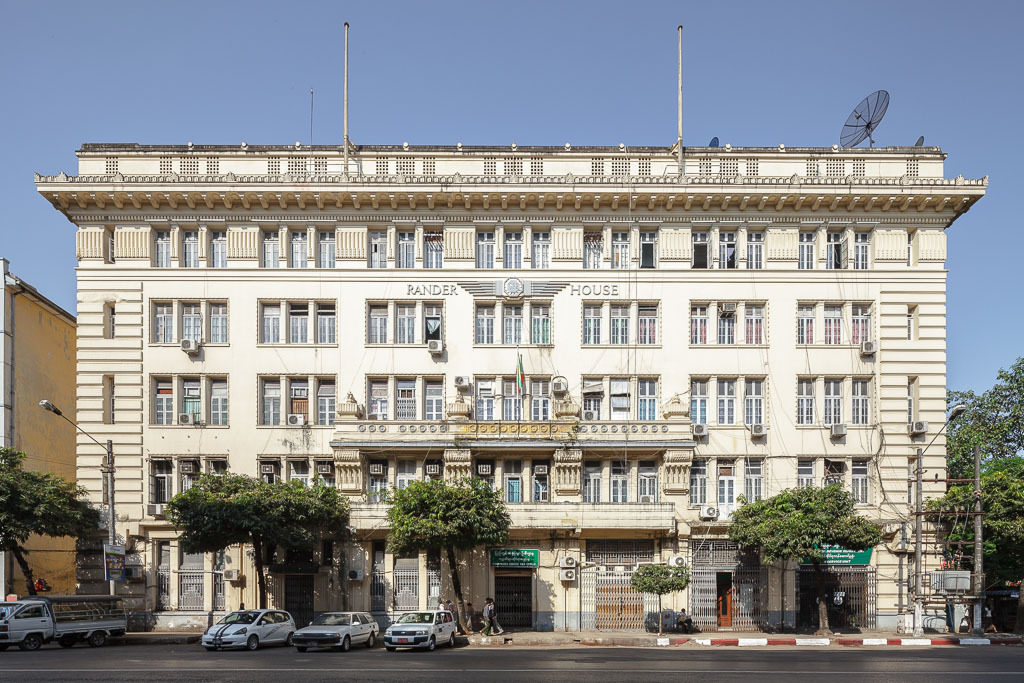
12. Former Sofaer's Buildings
58-62 Pansodan Street, corner of Merchant Road
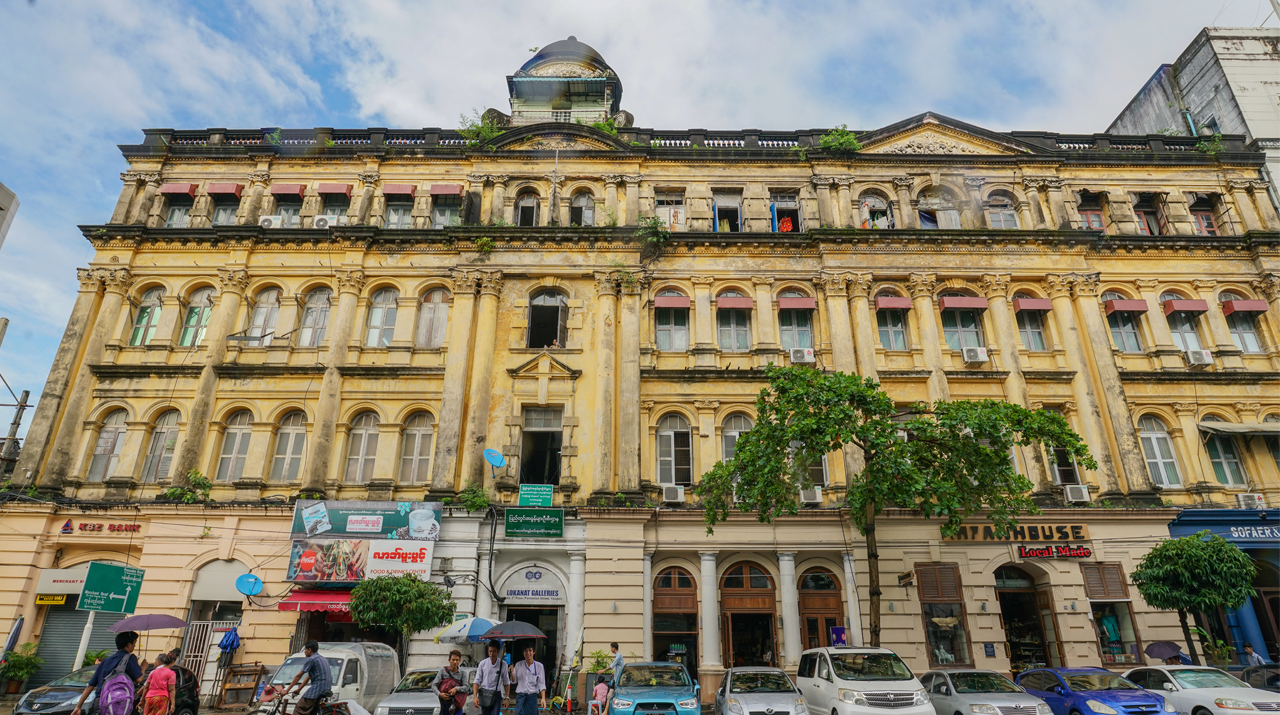
13. Central Post Office
Strand Road, corner of Bo Aung Kyaw Street
(Read More)
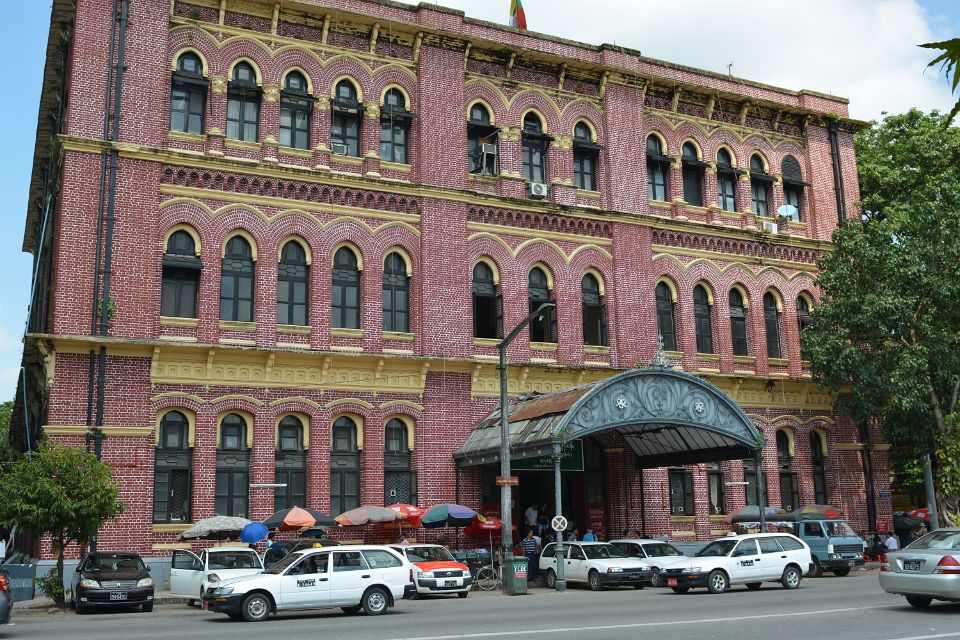
14. Yangon General Hospital
Bogyoke Aung San Road, Between Lanmadaw Street and Shwedagon Paya Road
(Read More)
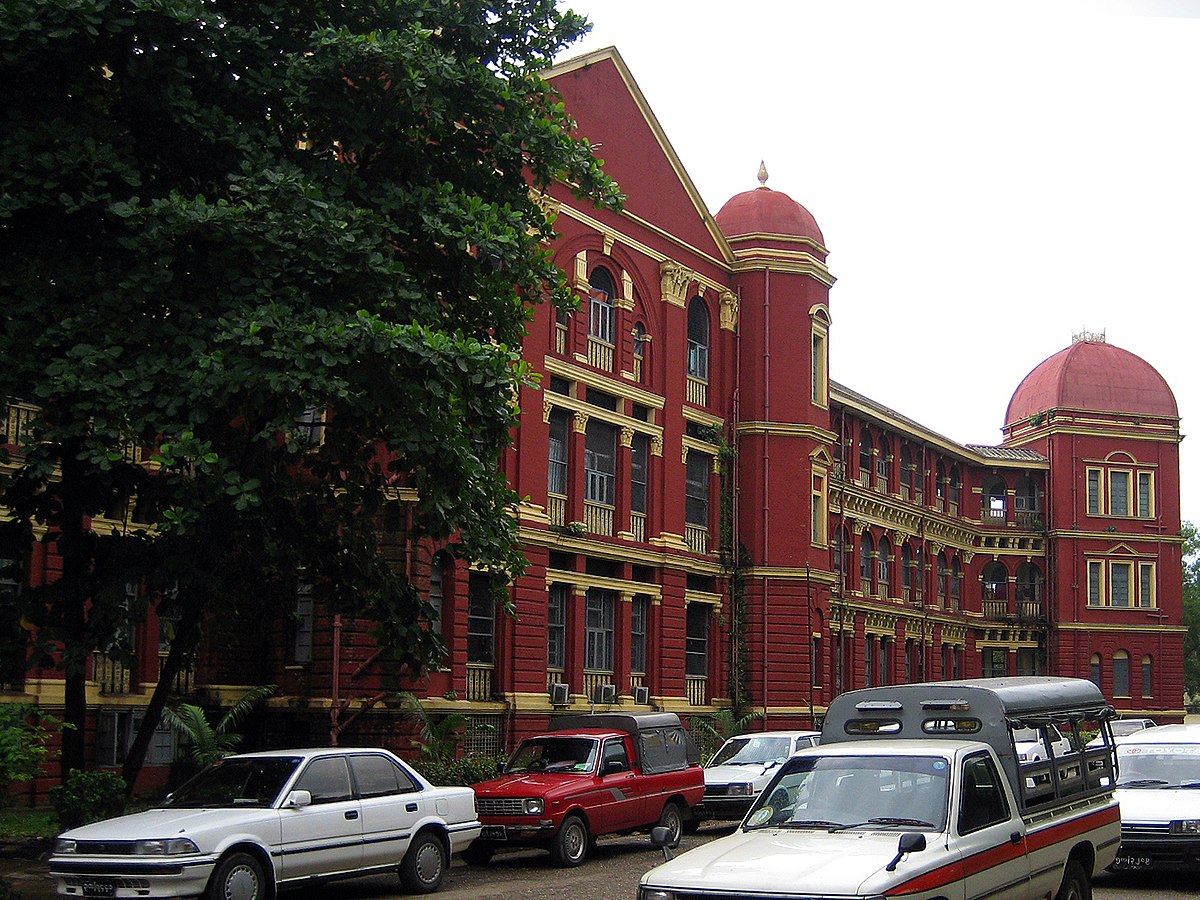
15. Police Commissioner's Building
Strand Road, east corner of Sule Pagoda Road
(Read More)

16. Bogyoke Aung San Market
Bogyoke Aung San Road
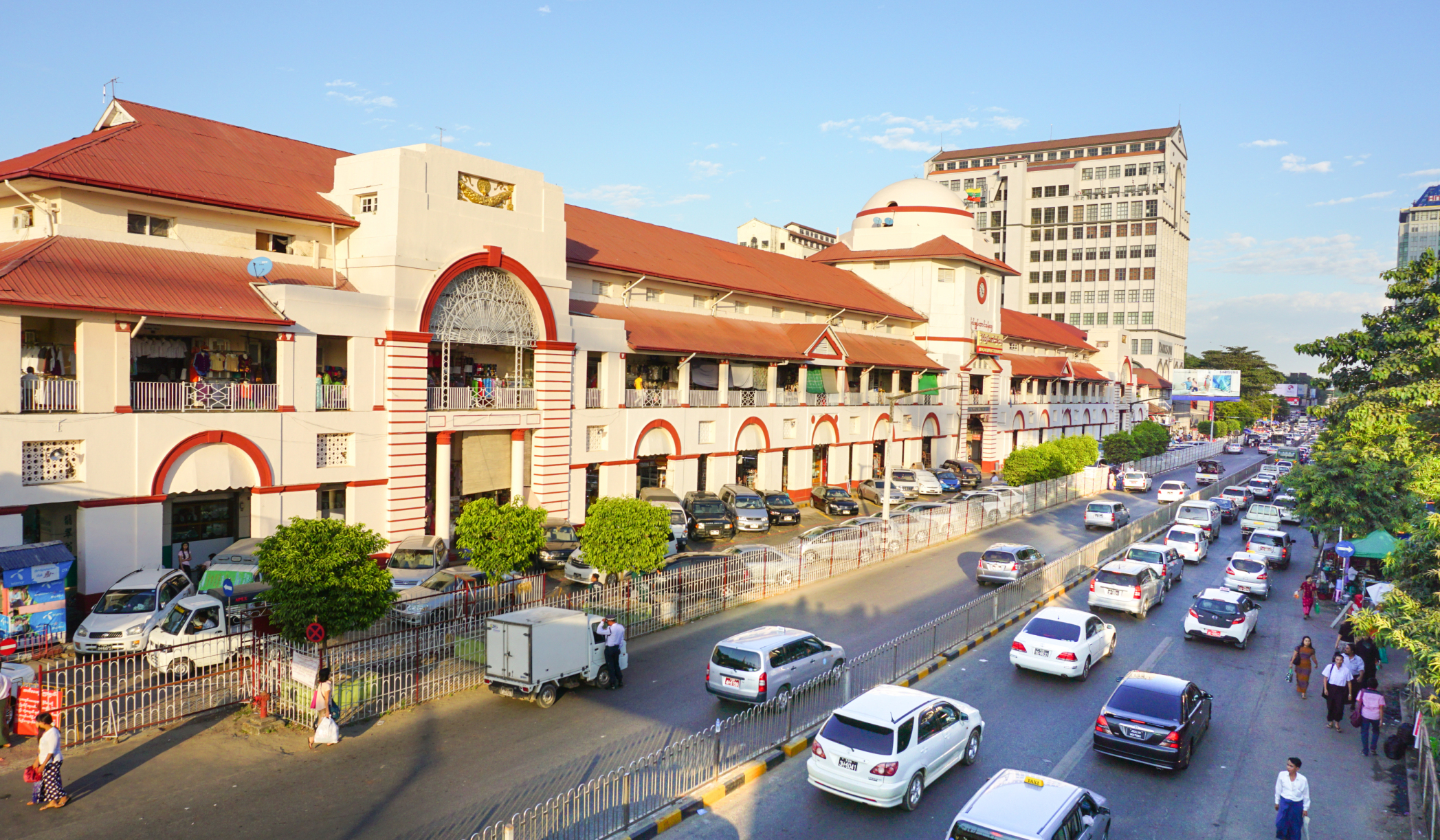
By the beginning of the twentieth century Yangon had become the third port in the British Empire, its plentiful wealth founded on oil, rice, and teak exports This prosperity attracted traders and workers from around the world and Yangon grew into a cosmopolitan city with a diverse population. The legacy of this cosmopolitanism can be seen today in the city's spectacular array of religious structures.
Yangon's downtown grid is considered to be one of the finest remaining examples of a "colonial core" in the region. This colonial core is comprised of grand administrative buildings of state (such as the Secretariat, the Custom House, and the High Court) and the former powerhouses of the central business district (Chartered Bank, the Reserve Bank of India, and Rowe & Co. Department Store). In addition, rows of charming shop-houses line the numbered streets in this part of the city - each of their singular designs reflecting the ethnicity of the original owner.
These buildings are survivors. They have withstood the bombs of World War Two that were dropped first by the invading Japanese army and later by Allied forces reclaiming the city in 1945. When the government shifted the capital to Naypyitaw in 2005 it left behind numerous ministry buildings which now stand empty, or only partially in use, while some have been put up for auction to private companies. Most recently, in 2008, the buildings weathered the devastating winds of Cyclone Nargis, which uprooted trees and stripped off much of the city's roofing. The buildings are, understandably, dilapidated due to lack of proper renovation, weakened by the intense humidity, voracious white ants, and shifting alluvial soil on which they stand.
Today, however, a new and more urgent threat looms. As government reforms herald a new wave of foreign investment that will catalyze the local economy, Yangon stands on the cusp of enormous change. Property developers are scoping out prime plots of land on which t? Construct tower blocks. There are as yet no effective heritage protection laws or planning regulations that curtail the height of buildings in certain zones or ensure that renovations are carried out in accordance with a building's original design. Within a few short years, many of these buildings may be demolished to make way for newer structures.
In early 2012, conservation efforts began in earnest through private endeavors such as the Yangon Heritage Trust, which aims to raise awareness of, and protect, the city's invaluable architectural heritage. The people of Yangon have a role to play in this effort - if potential investors and those heritage buildings can become a valuable resource, conservationists have a chance of succeeding. There is certainly plenty of potential. With the increased development of Myanmar business and the growth of international tourism, old properties could be renovated for use as offices, hotels, museums, restaurants, bars, shopping complexes, department stores, residential units, art galleries, and theatres or cinemas. Such reinventions will offer a new lease of life to Yangon's historic buildings and ensure that with decision-making power understand that these relics of the city's past can also play a sustainable and vibrant role in its future.







